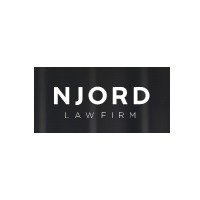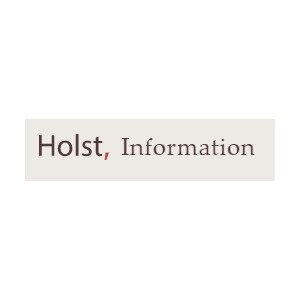Best Nonprofit & Charitable Organizations Lawyers in Copenhagen
Share your needs with us, get contacted by law firms.
Free. Takes 2 min.
List of the best lawyers in Copenhagen, Denmark
About Nonprofit & Charitable Organizations Law in Copenhagen, Denmark
Nonprofit and charitable organizations in Copenhagen are an integral part of the social fabric, contributing significantly to various sectors including education, social services, health, and the arts. Legal frameworks for these organizations are designed to support their functioning while ensuring transparency and accountability. Establishing a nonprofit in Copenhagen involves understanding statutory regulations, tax laws, and governance structures that dictate how these entities operate. The Danish Act on Foundations and Certain Associations, as well as the Civil Code, largely governs these organizations, ensuring they comply with both national and local compliance requirements.
Why You May Need a Lawyer
Engaging a lawyer for nonprofit and charitable organizations can be crucial for several reasons. Common situations include establishing a new nonprofit, ensuring compliance with legal and tax obligations, handling employment matters, and navigating complex governance issues. Lawyers can also provide counsel during mergers or collaborations with other entities, and in cases of disputes or litigation. Their expertise is crucial for drafting and reviewing contracts, obtaining the necessary permits, and understanding the implications of changes in legislation affecting nonprofits.
Local Laws Overview
Copenhagen’s legal framework for nonprofits primarily revolves around the Danish Act on Foundations and Certain Associations. Key aspects include:
- Registration Requirements: Nonprofits must register with the Danish Business Authority for legal recognition.
- Tax Exemption: Certain charities may be eligible for tax exemptions, but must comply with strict conditions related to public benefit activities.
- Governance and Reporting: Nonprofits are required to have a clearly defined governance structure and must submit annual reports detailing financial and operational activities.
- Fundraising Regulations: There are specific rules governing how organizations can solicit donations, ensuring transparency and donor protection.
- Public Benefit Status: Gaining public benefit status requires meeting criteria that align with charitable purposes, as recognized by the government.
Frequently Asked Questions
What are the steps to start a nonprofit organization in Copenhagen?
To start a nonprofit in Copenhagen, you need to draft a charter, register with the Danish Business Authority, and apply for tax-exempt status if applicable. Seeking legal advice can streamline this process.
Do all nonprofits qualify for tax exemptions in Denmark?
No, only organizations that meet specific criteria for public benefit activities are eligible for tax exemptions. This requires adherence to stringent guidelines and periodic reviews.
Are there reporting requirements for nonprofits in Copenhagen?
Yes, nonprofits must submit annual reports to the Danish Business Authority detailing their financial status and operations to maintain transparency and compliance.
How are nonprofits governed in Denmark?
Nonprofits must establish a board of directors or similar governing body and follow the guidelines set out in their charter documents for decision-making processes.
What legal structures are available for nonprofits?
In Denmark, nonprofits commonly register as associations or foundations, each with distinct legal and operational structures.
Can a nonprofit engage in commercial activities?
Nonprofits may engage in commercial activities, but these activities must align with their charitable objectives and any profits should contribute to their mission.
What are fundraising regulations for nonprofits?
There are specific legal requirements for public fundraising, including transparency in how funds are solicited and used, ensuring accountability to donors and the public.
What happens if a nonprofit violates local laws?
Violations can lead to penalties, loss of tax-exempt status, or even dissolution of the organization. Legal compliance is crucial for operational sustainability.
Can nonprofits merge with other entities?
Yes, mergers are allowed but require legal guidance to navigate the complexities of combining entities while complying with existing legal obligations.
How can an organization obtain the public benefit status?
To obtain public benefit status, an organization must apply and demonstrate that its activities align with recognized charitable purposes and benefit the public at large.
Additional Resources
For those seeking further information or assistance, the following resources in Copenhagen may be helpful:
- The Danish Business Authority
- Copenhagen Municipality’s Department of Culture and Leisure
- The Danish Association of Nonprofit Organizations (ISOBRO)
- The Danish Tax Agency (Skattestyrelsen) for queries on tax exemptions
- Law firms specializing in nonprofit and charitable organization law
Next Steps
If you need legal assistance for your nonprofit or charitable organization in Copenhagen, consider the following steps:
- Conduct initial research to understand your legal needs.
- Consult with a lawyer specializing in nonprofit law to discuss your specific situation.
- Gather all necessary documentation related to your organization’s goals and activities.
- Reach out to local resources such as the Danish Business Authority for guidance on formal requirements.
- Regularly review and update your compliance practices to align with changing regulations.
Lawzana helps you find the best lawyers and law firms in Copenhagen through a curated and pre-screened list of qualified legal professionals. Our platform offers rankings and detailed profiles of attorneys and law firms, allowing you to compare based on practice areas, including Nonprofit & Charitable Organizations, experience, and client feedback.
Each profile includes a description of the firm's areas of practice, client reviews, team members and partners, year of establishment, spoken languages, office locations, contact information, social media presence, and any published articles or resources. Most firms on our platform speak English and are experienced in both local and international legal matters.
Get a quote from top-rated law firms in Copenhagen, Denmark — quickly, securely, and without unnecessary hassle.
Disclaimer:
The information provided on this page is for general informational purposes only and does not constitute legal advice. While we strive to ensure the accuracy and relevance of the content, legal information may change over time, and interpretations of the law can vary. You should always consult with a qualified legal professional for advice specific to your situation.
We disclaim all liability for actions taken or not taken based on the content of this page. If you believe any information is incorrect or outdated, please contact us, and we will review and update it where appropriate.

















